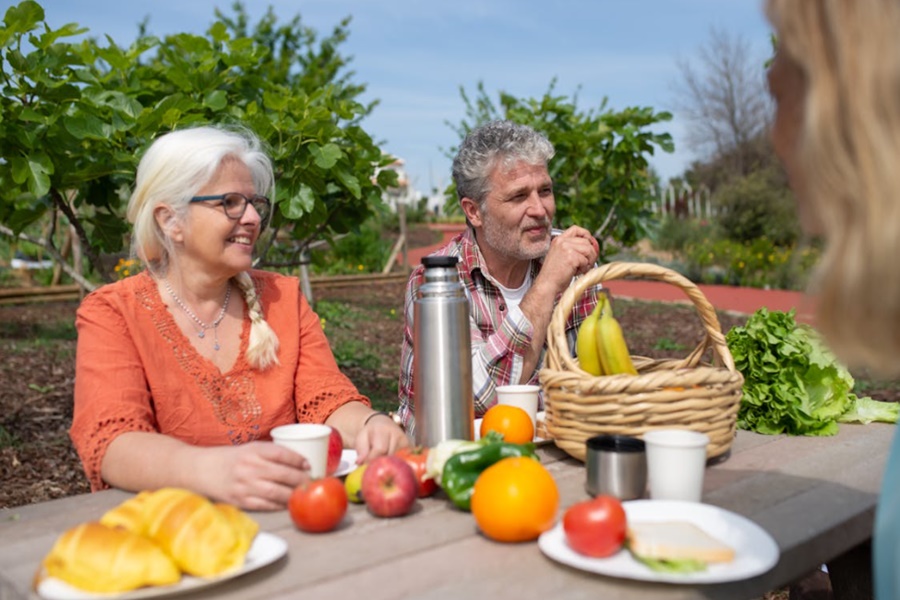
In this article, we are going to be providing you with the basic knowledge you need to know about geriatric nutrition.
The process of aging leads to a lot of physiological changes that affect the dietary needs of the individual. In prescribing a diet for an elderly person, care must be taken to select diets that provide dietary intake of energy and essential nutrient adequate in type and quantity.
One should also note that socio-cultural influences play an important role than instincts in directing food choice.
Nutrition
Nutrition is defined as the science of food, nutrients and substances , their activities, interactions and balance in relation to health and disease process by which an individual ingest, digest, absorb, utilize and excrete substances.
For the maximum benefit from the food, the meal of an elderly must be well planned. Meal planning for elderly is not different from that of the middle age adults since old age is a continuation of the past life with likes and dislikes for certain foods.
Elderly persons are often encourage to continue to eat their favourite foods with minimum modifications to take care of their new physiological and probably disease condition.
Read Also: Nursing Diagnosis In The Home Care of The Elderly
Guidelines For Planning The Meal Of an Elderly Person
Using geriatric nutrition approach, below are the guidelines for planning the meal of an elderly person;
- The intake of protein by the elderly should be increased for about 1.5g – 2g per kilogram body weight in order to maintain normal nitrogen balance since metabolism of protein increases in old age.
- Excessive intake of protein should be avoided since it puts a lot of stress on the liver and kidney whose efficiency are reduced by the process of aging.
- Energy intake should be reduced in view of reduced physical activities and metabolism. Excessive intake of calories reduces the life expectancy of the elderly by initiating metabolic disease like diabetes mellitus and hypertension. Records has it that maintenance of working weight has protective effect. So an elderly should take enough calories to sustain their working weight.
- Water and fluid intake of the elderly should be generous, about 1.5 to 2 litres a day provided it is not contraindicated by a medical condition. These levels of hydration will ensure a urinary out-put of at least 1.5 litres a day.
- Vitamins and mineral intake by the elderly should be generous especially iron, calcium and vitamin C and B. sodium intake should be reduced because of high blood pressure and renal condition common in the elderly.
- Joules derived from fat should be cut down to about 20% of the total joules. It should be essential fatty acids.
- The diet of the elderly should contain high fibres to prevent constipation.
- Attention must be paid to the state of dentition of the elderly and their foods must be presented in form that can handled by such dental state.
- To satisfy the recommended intake of certain nutrients like vitamin C, B and A, it is necessary to introduce specific foods like fresh fruits and dark green vegetables and milk.
- Empty calorie foods should be avoided. Such foods include sugar, honey and oil. Foods with high nutrients density should be given considering the disease state of the elderly.
- Food choice responds principally to learned conditioning which influences all the activities of the elderly. The elderly should be presented with foods that they are familiar with.
Importance of Geriatric Nutrition
- Aging is part of living. The choice of food of an individual has a far reaching implication on the aging process of such individual.
- Human aging is becoming one of the biggest challenges that man faces continually, but with the help of adequate and good nutrition, such challenges can be tackled.
- Healthy nutrition is needed to increase the age of onset of chronic degenerative disease and to maintain healthy functional living in the elderly.
- Nutritional deficiencies are common in the elderly due to factors such as reduced food intake, lack of variety in foods they eat, medications the deplete nutrients and create side effects, price of food rich in nutrients and the deplorable food choice available from the anorexia of aging due to hormones that are higher in elderly and leads suppressed hunger there by leading to malnutrition .
- Notable changes due to declining nutrition include weigh loss and dehydration, loss of muscle mass, poor performance of daily living and poor oral health status. A good nutrition helps to correct or prevent all these notable changes.
- Most medications used to treat disease common in the elderly have been shown to have the potential of creating nutrient deficiencies, for this reason the nutritional status of the elderly should be monitored especially when they are on drugs that can affect their nutritional status.
- It is also noted that the immobility either in bed or on a chair contributes to negative nitrogen balance and increased protein demands that are associated with the requirements for healing wound pressure ulcers or bone fractures and for producing immune bodies when fighting infections. So it is important to provide enough dietary protein to maintain tissue integrity, muscle mass and immune function.
- Achieving adequate fluid consumption in older adults is sometimes difficult because with advancing age, thirst decreases and voluntary fluid intake is impaired. It is important to maintain adequate hydration because water serves several purposes including maintenance of body temperature, a diluent for medications and a solvent for nutrients waste products and electrolytes.
We hope this information was helpful. Feel free to ask your questions in the comment section below.